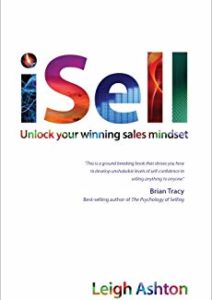I’m often asked “In selling, how do I justify my pricing strategy to my customers? How can I make them see that my product/service is worth the money?”
There are two parts to this. I’ll cover how to overcome price objections later, but first an important reminder: before you can tackle any price objections from your potential client, YOU need to be comfortable with your prices!
Here’s how you do that:
Unpack your own beliefs about your personal value
A lot of sales people who are uncomfortable with the prices of their own products and services are actually struggling with their sense of personal value. This is why so much unnecessary discounting creeps in, especially when there’s no real market standard cost for what they do or there’s little idea of what people are actually willing to pay. So before you do anything else, make sure you unpack your own beliefs around value…
Reframe your thinking: it’s not only about the end product
When people buy something from you, they’re not just paying for the product or service — a big part of the value is your unique training, expertise and experience that you bring to the table. If you worry that you’re charging too much, then consider the time you’ve spent studying and practicing your craft, the career experience you have, and the cost of acquiring your expertise. Be clear, in most cases they are not paying you for just for your time, or for your physical product, they are paying because you know exactly what to do to help them.
Work on your beliefs about selling
If you believe that you’re no good at selling, then you’re not going to get the results you want, no matter what your pricing is. People will take their cues from you as to how to respond to your prices, so if you’re awkward and apologetic when stating your price, then they’re going to feel like you have something to apologize for — that maybe your pricing isn’t fair to them, or that you’re not worth the money. If you struggle with this, do some work on your beliefs around selling. There are plenty of resources out there and if you contact me I can point you in the right direction.
Change your tone
You can make a start by introducing a “command tonality” whenever you talk about your pricing. It’s very simple — just use a downward tonality in your voice (like you’re giving a command) instead of an upward one (like you’re asking a question). It will help get your own brain on board with what you’re saying, as well as those of your potential customers. And as well as making you feel more authoritative inside when you’re stating the price, it sends the same signal to your potential client and wards off any hint that you’re willing to negotiate.
Overcoming price objections
Secondly, let’s move further into the territory of how you can easily justify your price to your potential customers. And how about overcoming those price objections? The most important thing to remember is that price is almost never actually the deciding factor in a sale — convenience, speed, and results are often much more important. However, potential clients often don’t realise how much they care about those factors – and it’s your job to remind them! Here are some tips…
Itemize before giving the final price
Don’t just drop a big number on your potential customers when it comes to stating your price — spell out exactly what they’re getting by buying from you, and talk about the value of each of those components before adding it all together for your final price. This reinforces the idea of value with them, and it makes the price feel more worthwhile to them because they can see how it all adds up.
Compare with the competition
People are going to compare you with your competition anyway, so there’s no point in trying to skate over this. Instead, play up the advantages of buying from you instead of the competition. What do you provide that they don’t; what sets your service apart? If they’re cheaper than you are, then in which ways do you give extra value to your customer so that you’re still the better choice?
Take the spotlight off the price
If you have a customer that’s really getting hung up on the price, you’ll need to lower their attachment to the price as the over-riding factor.
When they say that they’re interested, but you’re just too expensive, just say something like, “I completely understand that price is important for you, but just to be clear, what else is important to you about this product/service?”
They might then come up with things like speed of delivery, timing generally, reliability, quality, customer service or more. If they stall or aren’t saying much, ask “what else?” (always a killer open question by the way) until you get a fairly comprehensive list. By bringing to the forefront other issues that also influence the buying decision, price will start to lessen in importance.
Include your strengths
Make sure you write down the list. Also, if you know you have a specific skill or advantage (for example a next day delivery service or a super easy returns policy) then ask them how important that is to them. Then you can find out if it’s a strength you can play up or if it isn’t really on their radar at all. If it is, add it to your list!
Next, take the first thing they mentioned after price – for this example let’s choose speed of delivery – and say something like “speed of delivery, what’s more important to you, price, or speed of delivery?” This starts the process of dismantling price as the be all and end all. Repeat the process until you have a new hierarchy of criteria.
When you do this exercise you’ll usually find that price drops down the decision-making criteria behind other factors – results and convenience usually! Using this technique will bring your proposition right back into favor.
Try it out the next time you hear price being mentioned as the reason they can’t or won’t make a decision in your favor.



Comments (1)
Good read…must never get into price war……make the customer buy your product donot sell…..